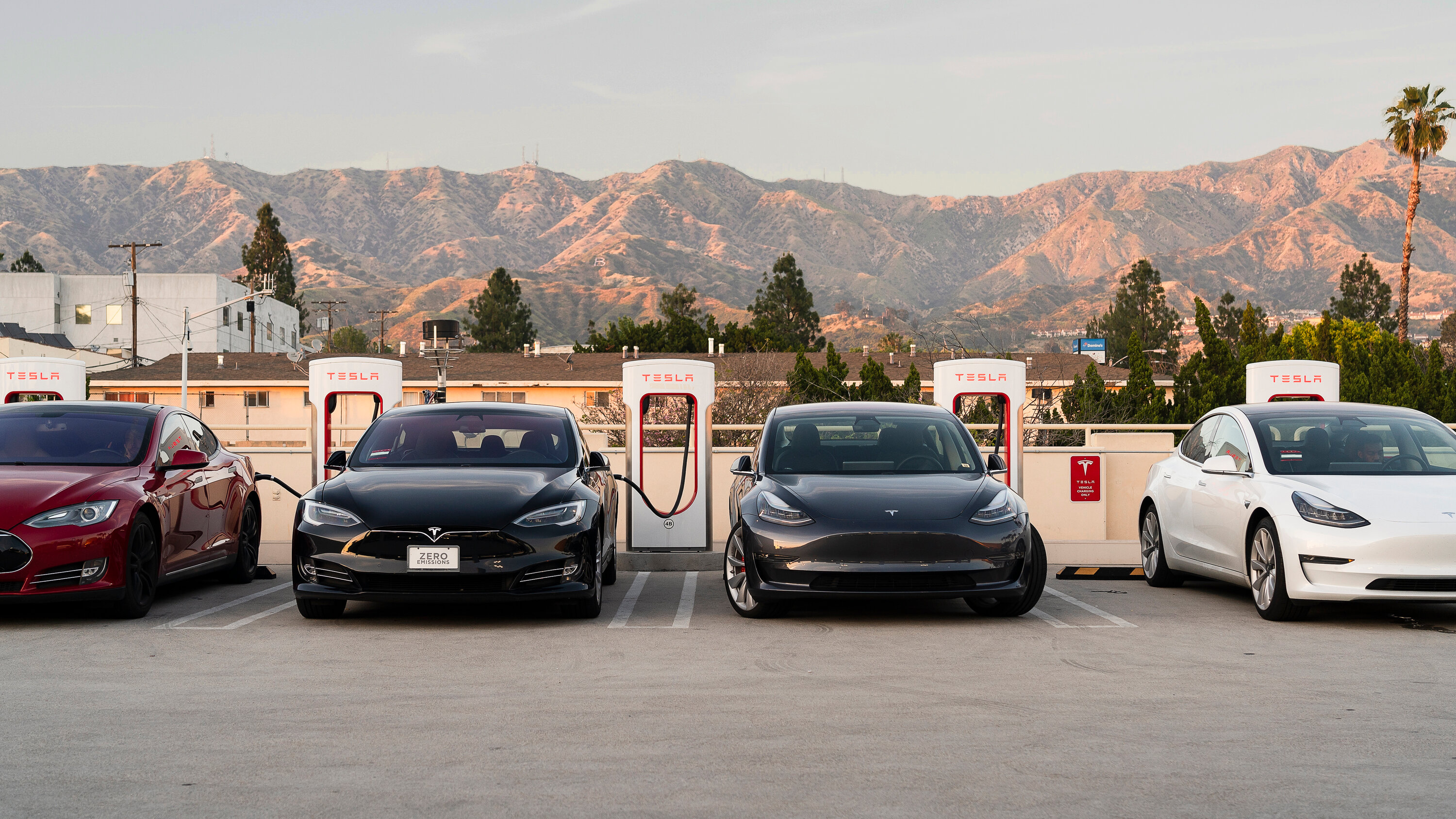EV Mandate Opposition Grows: Car Dealers Push Back

Table of Contents
Concerns Regarding Infrastructure Readiness
The lack of sufficient infrastructure to support widespread EV adoption is a major source of opposition to EV mandates. This concern manifests in two key areas: charging station scarcity and grid capacity limitations.
Charging Station Scarcity
Many areas lack the necessary charging infrastructure to support a widespread adoption of EVs. This is a significant hurdle for both consumers and dealers, impacting EV sales and consumer satisfaction.
- Insufficient public charging stations: The current number of public charging stations is inadequate to meet the demands of a large-scale EV market.
- Long charging times: Even with available chargers, the time required to fully charge an EV can be significantly longer than filling a gasoline tank, creating inconvenience for drivers.
- Uneven geographical distribution of chargers: Charging stations are often clustered in urban areas, leaving rural communities underserved and hindering EV adoption in those regions.
- Lack of standardization across charging networks: The lack of a universal charging standard creates confusion and frustration for EV drivers, making it difficult to find compatible charging stations.
Dealers worry about customer dissatisfaction if they purchase an EV and struggle to find charging options. This negative experience could damage the EV brand and impact future sales of electric vehicles, creating a significant barrier to the successful implementation of EV mandates.
Grid Capacity Limitations
The increased demand for electricity from widespread EV adoption could overwhelm existing power grids, leading to blackouts and instability. This is a critical long-term concern that adds to the opposition to EV mandates.
- Need for significant grid upgrades: Massive investments are needed to upgrade the electricity grid to handle the increased load from millions of EVs charging simultaneously.
- Increased electricity costs: The strain on the grid could lead to increased electricity prices, making EV ownership more expensive and less attractive to consumers.
- Potential for regional power shortages: Certain regions may experience more significant power shortages than others, exacerbating the challenges of EV adoption.
- Strain on renewable energy sources: The increased energy demand will place a greater burden on renewable energy sources, potentially hindering their ability to meet the demand sustainably.
Dealers are concerned about the long-term sustainability of the EV market if the grid cannot keep up with demand. Potential market disruptions caused by grid instability are a serious concern fueling the opposition to aggressive EV mandates.
Consumer Demand and Affordability
Another major factor contributing to the opposition to EV mandates is the current state of consumer demand and affordability. High purchase prices and range anxiety remain significant barriers.
High Purchase Prices
Electric vehicles generally command a higher purchase price than comparable gasoline-powered vehicles, making them inaccessible to many consumers. This affordability issue is a core reason behind the pushback against EV mandates.
- Limited availability of affordable EVs: The current market lacks a sufficient number of affordable EVs to meet the demands of a mass-market transition.
- High battery costs: The high cost of EV batteries significantly contributes to the overall price of electric vehicles.
- Government subsidies not always sufficient: While government subsidies exist in some regions, they are often insufficient to bridge the affordability gap for many potential buyers.
- Impact on used car market: The transition to EVs will also impact the used car market, potentially leading to reduced value for older gasoline-powered vehicles.
Dealers fear that a forced EV transition will alienate a large segment of the population who cannot afford EVs, harming sales and profitability. This economic concern is a key element of the opposition to mandatory EV adoption.
Range Anxiety and Charging Time Concerns
Consumers remain hesitant due to concerns about limited driving range and lengthy charging times. This "range anxiety" is a significant barrier to wider EV adoption.
- Fear of running out of charge: Consumers worry about becoming stranded due to insufficient battery range.
- Inconvenience of charging: The time commitment required to charge an EV can be a deterrent, especially when compared to the speed of refueling a gasoline car.
- Lack of fast-charging options everywhere: The availability of fast-charging stations is still limited in many areas, extending charging times and hindering long-distance travel.
- Impact on long-distance travel: The limited range of many EVs makes long-distance trips more challenging and less appealing compared to gasoline-powered vehicles.
Dealers express worry about the negative perceptions around EV range and charging, which will hinder sales unless these issues are adequately addressed. Overcoming range anxiety is vital for the success of any EV mandate.
Dealer Preparedness and Training
The transition to EVs requires significant investment and training for car dealers, adding another layer to the opposition to EV mandates. Dealers face challenges in upgrading their infrastructure and expertise.
Investment in New Infrastructure and Expertise
Dealers need significant investment to upgrade their facilities for EV servicing and maintenance. This financial burden is a major concern.
- Specialized tools and equipment needed: EV repair requires specialized tools and equipment that dealers currently may not possess.
- Training for technicians: Technicians require specialized training to service and repair EVs, which requires time and financial investment.
- Changes to service bays and infrastructure: Dealership service bays may need modifications to accommodate the specific requirements of EV servicing.
- Increased operational costs: The overall cost of operating a dealership that services EVs will likely increase significantly.
The financial burden of adapting to the EV market without adequate support from manufacturers or the government is a major concern for dealers, fueling opposition to aggressive EV mandates.
Inventory Management and Sales Training
Effectively managing EV inventory and training sales staff on the nuances of electric vehicles requires substantial resources and expertise.
- New sales strategies: Selling EVs requires different sales strategies compared to selling gasoline-powered vehicles.
- Changes in customer service approach: Customer service needs to adapt to the unique requirements of EV owners.
- Inventory forecasting challenges: Accurately forecasting EV inventory demands is challenging due to the relatively nascent nature of the market.
- Adapting to different EV models and features: The rapid evolution of EV technology necessitates ongoing training and adaptation for dealers and their staff.
Dealers highlight the challenges of shifting to an entirely new technology without proper guidance and support, raising concerns about lost revenue and potential business failures. A phased approach with adequate support is crucial to mitigate these challenges.
Conclusion
The opposition to EV mandates is growing, fueled by legitimate concerns surrounding infrastructure readiness, consumer demand and affordability, and dealer preparedness. Addressing these challenges through realistic timelines, robust government support (including financial incentives and infrastructure development), and collaborative efforts between manufacturers, dealers, and policymakers is crucial for a successful transition to electric vehicles. Ignoring the concerns of car dealers and the wider automotive industry risks undermining the long-term viability of the EV market. We need a balanced approach to ensure a smooth and successful transition, avoiding a forced EV mandate that could ultimately damage the industry and hinder the widespread adoption of electric vehicles. A collaborative effort is needed to address the concerns around the EV mandate and find a path toward sustainable EV adoption.

Featured Posts
-
 Understanding The X101 5 Big Rig Rock Report 3 12
May 23, 2025
Understanding The X101 5 Big Rig Rock Report 3 12
May 23, 2025 -
 Harnessing Space Crystals For Enhanced Drug Development
May 23, 2025
Harnessing Space Crystals For Enhanced Drug Development
May 23, 2025 -
 Arrows Damien Darhk Could He Defeat Superman Mc Donough Weighs In
May 23, 2025
Arrows Damien Darhk Could He Defeat Superman Mc Donough Weighs In
May 23, 2025 -
 Remont Pivdennogo Mostu Detalniy Analiz Proektu
May 23, 2025
Remont Pivdennogo Mostu Detalniy Analiz Proektu
May 23, 2025 -
 Meet The Cricket Bat Master Preserving A Legacy
May 23, 2025
Meet The Cricket Bat Master Preserving A Legacy
May 23, 2025
Latest Posts
-
 Jonathan Groffs Broadway Opening Lea Michele And Co Stars Show Support
May 23, 2025
Jonathan Groffs Broadway Opening Lea Michele And Co Stars Show Support
May 23, 2025 -
 Joe Jonas And The Couples Fight His Reaction
May 23, 2025
Joe Jonas And The Couples Fight His Reaction
May 23, 2025 -
 Jonathan Groffs Just In Time A Night Of Broadway Camaraderie
May 23, 2025
Jonathan Groffs Just In Time A Night Of Broadway Camaraderie
May 23, 2025 -
 Jonathan Groffs Broadway Performance In Just In Time A Tony Contender
May 23, 2025
Jonathan Groffs Broadway Performance In Just In Time A Tony Contender
May 23, 2025 -
 Broadways Best Celebrate Jonathan Groff Photos From The Just In Time Opening
May 23, 2025
Broadways Best Celebrate Jonathan Groff Photos From The Just In Time Opening
May 23, 2025
